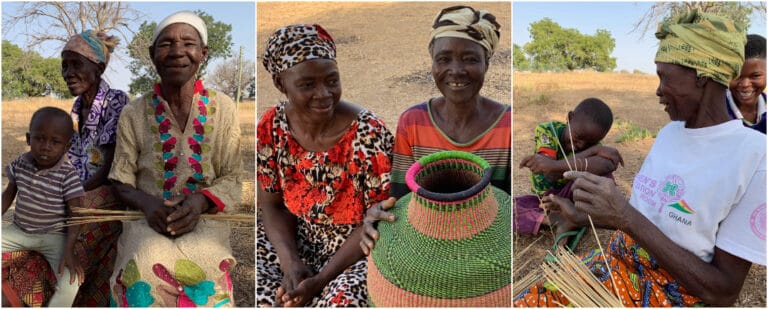An Interview with Bashiri Director Simon Fraser
Simon’s love for West African art was sparked in 1997 when he ventured to Ghana on a musical pilgrimage. He instantly fell for the creative soul of the region and returned for a truly epic tour the following year: a 8,000km journey across Burkina Faso, Ghana, Guinea, Ivory Coast and Mali.
It is Simon’s belief that life truly imitates art in West Africa. Earthy colours, striking forms & patterns, simplicity and the stories behind every piece: he knew people back home would love it.
In the following interview Simon goes into depth about how his passion for West Africa started, why it was so important for him to bring the culture to Australia and how he sees Bashiri growing in the future.
How did you become interested in West African culture?
I became interested in West African culture when I first went to Ghana in 1997. I was travelling as part of a percussion study tour. Originally I was only intending to go there for one month. But I connected with a lot of people over there and decided to hang around for three months. I lived inside a village on the outskirts of Accra, the capital of Ghana, and started to visit all kinds of ceremonies over the course of that period.
When you start to go to the ceremonies and festivals, you start to see the way that the locals live on a day to day basis and it gives you an insight into how their culture works, how music and culture are intertwined and as an extension to that, how the very ancient beliefs form part of their every day lives.
It was that three month immersion in Ghana that kick-started my passion for West Africa.
Where did the idea for Bashiri come from?
The idea for Bashiri came to me when I realised that music and culture could not be separated in West Africa. The more I delved into the music, the more I started to go to ceremonies and the more I witnessed that at the ceremonies the locals were dancing while wearing these incredible masks. So I started to take a fascination into the meaning behind these masks.
The further I looked into it the more I realised each ceremony has a specific rhythm that is played for a particular occasion and certain ritualistic dances will take place with very specific masks. So the masks are aligned with the rhythms and specific masks are only worn for certain occasions. I started to pay a keen interest in the masks in particular, and that drew me to meeting up with local artisans and traders who deal in masks and artefacts, and it just grew from there.
Why was it important for you to bring West African art and culture to Australia?
It felt natural for me to bring back what I had learnt and what I had witnessed in West Africa back to Australia with me. I was teaching West African music back in Australia and as I previously mentioned the masks and the music go together. So I started to develop a fascination for the artefacts and masks, and while I was importing drums and percussion equipment I started to bring some masks in. I loved them so I started bringing them in for myself. But as I started to grow my business in Melbourne. I decided to decorated the store with with masks.
It occurred to me that if you’re really going to take the music seriously you have to really immerse yourself in everything that embodies the culture, like the masks.
How are Bashiri products sourced?
All the products that we source from West Africa come from artisans themselves and from traders that I’ve been dealing with for up to 20 years now. During my annual trips to West Africa since the mid 1990’s I’ve developed some great friendships and rapport with some local artists, and also some people that connect into the various villages where masks, artefacts and baskets are sourced from.
It was a matter of establishing contact with these people as I travelled around Burkina Faso, Mali and Ghana, and connecting with them. Understanding what they do, who they trade with and what the origins of the products were was very important. Also, going into the villages to see the products being produced by the locals meant we knew how each product was made. We’ve come to a common agreement with the traders that we’re going to come back every year and we’re looking to establish a relationship that has longevity. It’s a cross-cultural exchange.
It’s fantastic that we’ve managed to keep this rapport going with all of these individuals and traders over this 20 year period.
What is your favourite Bashiri product?
That’s a tough question! I’d have to say probably my favourite products are the masks. I have a big collection of masks at home and I just think that how much they are steeped in heritage and cultural significance really resonates with me. I also like the fact that they are all used for ceremonial purposes as well.
Where would you like to see Bashiri progress in the future?
I’d love to see Bashiri grow for the simple reason that it really supports a lot of people back in West Africa. We are very strong believers in doing business with them at fair trade conditions and supporting them as much as possible to grow their business. Purely by doing business with one trader in West Africa can mean that you’re really supporting dozens of artists and their families. So to continue to grow it across Australia means continuing to support families through our trade.

